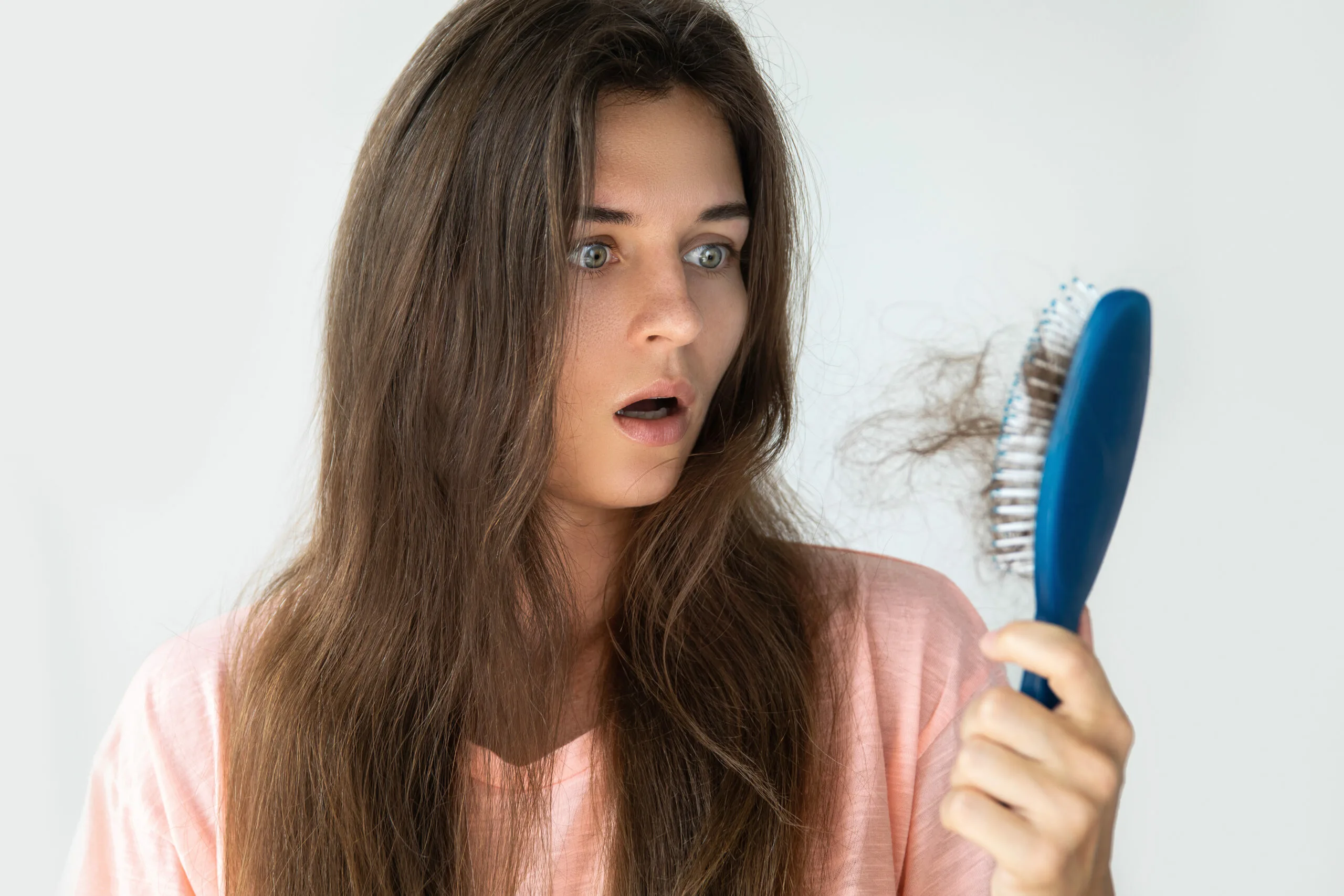The most common reasons of female hair loss and how to cure them
Your hair is your crowning jewel, so discovering that you're losing more than normal may be quite concerning, especially if you don't know what's causing it. Hair loss is a very prevalent condition among women, so you're not alone. Hair loss is often transient, but what may be causing it?
You are anemic.
One in every ten women is anaemic, which means her red blood cell count is lower than it should be. Iron deficiency anaemia, which is most common in women of reproductive age, can cause tiredness, shortness of breath, heart palpitations, and hair loss. If you don't have enough iron, your body won't be able to generate haemoglobin, which is required for cell development and repair, including cells that drive hair growth.
If you feel that your hair loss is caused by anaemia, see your doctor so that your iron levels may be measured. It is treatable with iron supplements, and any hair loss is generally transient. Keep in mind that hair is more susceptible to low iron levels than other areas of the body, therefore we prefer iron levels that are somewhat greater than the minimum advised for general health.
You've had a child.
Unfortunately, your bundle of joy may bring some unwelcome changes to your body! Hair loss after childbirth is quite frequent. This is due to growing levels of oestrogen and progesterone extending your hair's development phase, making it appear fuller and thicker than usual - which means the hair will shed after you've given birth and your hormone levels return to normal.
It's not fun, but in most situations, it's just temporary, and your hair will be back to normal in six to twelve months. Meanwhile, make sure you're eating a well-balanced diet and taking care of your hair.
You've lost weight fast.
Crash diets are bad for you in general, but did you know they may also harm your hair? If you lose a lot of weight quickly, you may notice that you're losing a lot more hair than usual six to twelve weeks later. This form of loss, known as telogen effluvium, happens when hairs are driven into the telogen phase — the end phase of the hair cycle – and fall out. It might be due to a nutritional deficiency — many people who are trying to lose weight do not consume enough protein. Because your body does not prioritize your hair, it will use the nutrients you consume to power your organs.
Telogen effluvium normally resolves on its own when your weight has stabilized, but it's a good idea to keep track of your nutritional intake.
It's your hairstyle.
Take a step back from the extensions! Traction alopecia is more frequent in women who use hair extensions or who wear their hair in tight hairstyles on a daily basis. When hair is tugged in the same location on a frequent basis, it can damage the root and cause the hair to fall out. It's typically reversible in the early stages - you only need to leave your hair down whenever feasible or alter up your hairstyles. However, in severe situations, the follicles may be too damaged for hair to regenerate, necessitating a hair transplant.
It's because of your hormones.
Women have high levels of oestrogen and progesterone and low levels of testosterone, but the hormone that causes pattern baldness is a byproduct of testosterone – dihydrotestosterone (DHT). DHT affects hair follicles, causing hairs to develop differently before the follicles shrivel and stop generating hair completely. In women, it generally begins around the crown of the head and advances slowly.
Fortunately, it is curable. Medications such as minoxidil and others that can successfully strengthen the hair, encourage growth, and aid in the prevention of future hair loss. Alternatively, a hair transplant might be the long-term solution — chat with our staff to find out whether it's right for you, or to explore any of our treatments and services.







